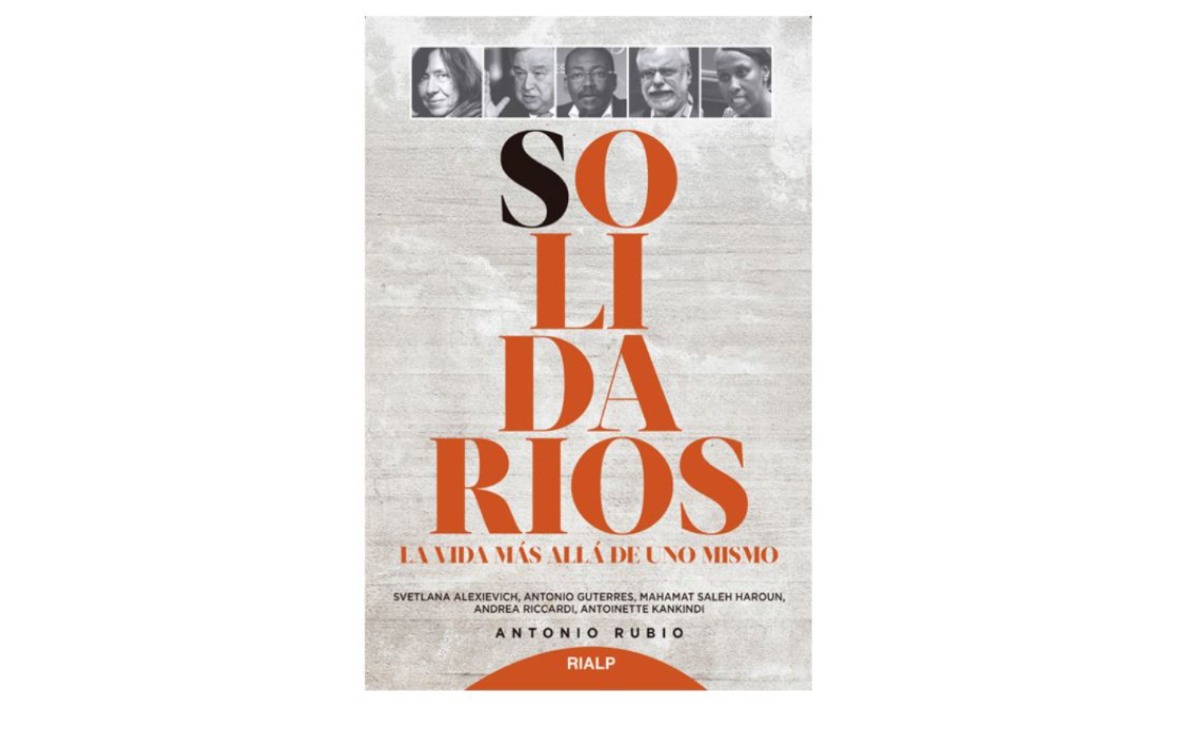
La vida más allá de uno mismo (Life beyond oneself), is published in Spain with the objective of bringing us five testimonies that aim to highlight the lives of five well-known names, who live and put their lives at the service of others. Its author is Antonio Rubio Po, professor of international politics, who has participated in El Espejo de la Cadena COPE commenting on his new publication.
The publication of the book coincides with the publication of the encyclical Fratelli Tutti of the Pope Francisco: "In principle I wanted to combine two things, I collaborate in cope.es with articles on faith and culture, but at the same time I cultivate the analysis of international issues. I wanted to combine people who had something to say apart from politics. This book has emerged from that combination," says the author.
Rubio Plo has analyzed the profiles of the protagonists of his book: "Those who dedicate themselves to writing have made ordinary people the protagonists of their works. The same has been done by those who dedicate themselves to cinema and if they have not done so with their works. It is a tribute to ordinary peopleis much more than mere descriptions. They are rather reflections of their lives".
The book presents five current personalities who in some way have demonstrated that life needs others. Svetlana Alexievich, historian and journalist, Antonio Guterres, UN Secretary General, Mahamat Saleh Haroun, filmmaker, Andrea Riccardi, founder of the Community of Sant'Egidio, and Antoinette Kankindi, professor of Ethics and political philosophy.
Carlos Herrera in the program Espejos de la COPE comments on the book by Antonio Rubio Plo, Ser solidarios: The book that goes 'beyond oneself'. (Author's image)
Antonio Rubio chose these five people because they are people who care about people. Plain and simple. People of solidarity. That type of person who has been able to go out of himself, driven by a fraternal love towards the rest of men.. Not from an abstract and ideological Humanity, but from a passion for the real man. As Antonio himself says, the five "share the conviction that human existence cannot be conceived without others".
Tolstoy appears recurrently, through his quotations. Especially when it comes to approaching Svetlana, Nobel Prize winner and portraitist of the social reality of the former Soviet socialist republics.
The author also stops at the initiatives launched by his five chosen ones. For example, the one created by Kankindi, trying to understand the role of women in Africa, and to change their situation.
In the end, by looking at these five men and women, what the author does is to look exactly where the five of them look, at ordinary people, because we will see that, deep down, they are also ordinary people.
Put a face to your donation. Help us form diocesan and religious priests.
They look at it from a film cameraThe book is a journey through the eyes of an essayist; from the platform of a university professor; from the mediation of the world's most entrenched conflicts; or from the office of the Secretary General of the United Nations, with his boots on so as not to get lost in the corridors of international bureaucracy.
It does through their biographiesThe importance of childhood in all of them, or of an anecdote or event that would mark them for life, is striking. Also impressive is the strength and power of the image in this essay, since all five, in one way or another, have been strongly influenced by the cinema, the great
Finally, this book is full of public statements, speeches and some comments that the author has lived in first person, acquiring a point of closeness and candor.
"You don't interrogate your friends: you just let them talk". This is how Antonio treats his five friends. He lets them speak through their lives.
It refers to an extensive filmography and library. Directors and authors come together, we could say that they conjure, to discover the meaning of civilization in the life of the "five solidary ones".
Guterres, a practicing Catholic, says that "being civilized means being able to fully recognize the humanity of others, even if they have faces and habits different from our own; knowing how to put ourselves in their place and look at ourselves as if from the outside (...) How we perceive and welcome others, those who are different, can measure our degree of barbarism or civilization".
The unity of Europe, its origins, the future of Africa, in particular countries such as Uganda, Chad, Kenya, Congo or Nigeria; peace in the world; cinema; the Russian soul; globalization and civil society; corruption, power and politics; geopolitics and human psychology; Russian literature, with Dostoiesvsky and Tolstoy, and the Italian literatureThe author addresses some of the topics addressed in the essay: feminism, forgiveness, with Pasolini, or the French, with Peguy.
This book is a window through which you see reality. The proof that it is true is that it does not close us off; on the contrary, it calls us to open ourselves to everything. To the whole world, but not in the abstract, but through concrete people. The same people who are looked at by the "five in solidarity", the historian of anonymous voices (Svetlana Alexievich), the man of intelligence and heart (Antonio Guterres), the filmmaker of compassion and forgiveness (Mahamat Saleh Haroun), the artisan of solidarity (Andrea Riccardi) and the educator of women (Antoinette Kankindi).
With the collaboration of:
Paginasdigital.es
Cope.es